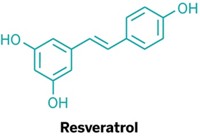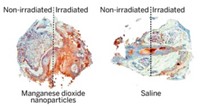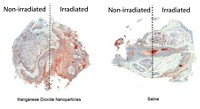Advertisement
Grab your lab coat. Let's get started
Welcome!
Welcome!
Create an account below to get 6 C&EN articles per month, receive newsletters and more - all free.
It seems this is your first time logging in online. Please enter the following information to continue.
As an ACS member you automatically get access to this site. All we need is few more details to create your reading experience.
Not you? Sign in with a different account.
Not you? Sign in with a different account.
ERROR 1
ERROR 1
ERROR 2
ERROR 2
ERROR 2
ERROR 2
ERROR 2
Password and Confirm password must match.
If you have an ACS member number, please enter it here so we can link this account to your membership. (optional)
ERROR 2
ACS values your privacy. By submitting your information, you are gaining access to C&EN and subscribing to our weekly newsletter. We use the information you provide to make your reading experience better, and we will never sell your data to third party members.
Pharmaceuticals
Vitamin C Impedes Tumor Growth In Mice
August 11, 2008
| A version of this story appeared in
Volume 86, Issue 32
High doses of vitamin C (ascorbate) slow tumor growth in mice without harming normal cells, researchers report (Proc. Natl. Acad. Sci. USA 2008, 105, 11105). Michael Graham Espey and Mark Levine of the National Institute of Diabetes & Digestive & Kidney Diseases and coworkers first showed that high levels of ascorbate kill cancer cells in vitro without toxicity to normal cells. The body strictly limits the absorption of ingested ascorbate, but the researchers demonstrated that this barrier can be bypassed in vivo by injecting the compound into tumor-bearing mice. They found that the injected ascorbate serves as a prodrug, leading to formation of free radicals and hydrogen peroxide within tumors. The ascorbate treatments reduced tumor growth and weight by about half and prevented the spread of cancer in the mice without adverse side effects. High doses of ascorbate can also be achieved in people, suggesting that ascorbate or its analogs could be promising anticancer therapeutics, a notion the researchers hope to test in clinical trials.





Join the conversation
Contact the reporter
Submit a Letter to the Editor for publication
Engage with us on Twitter